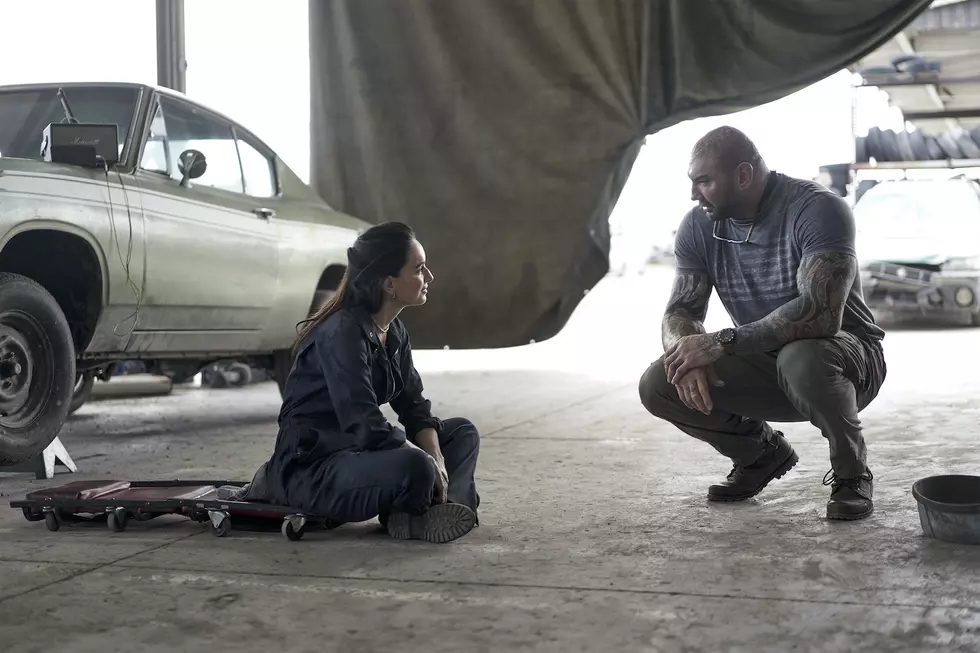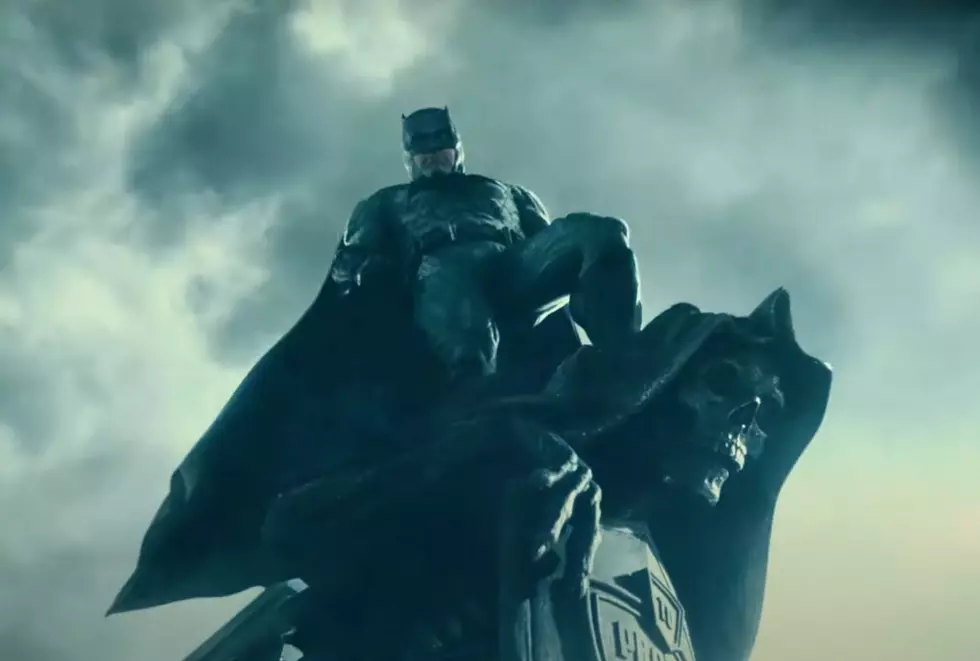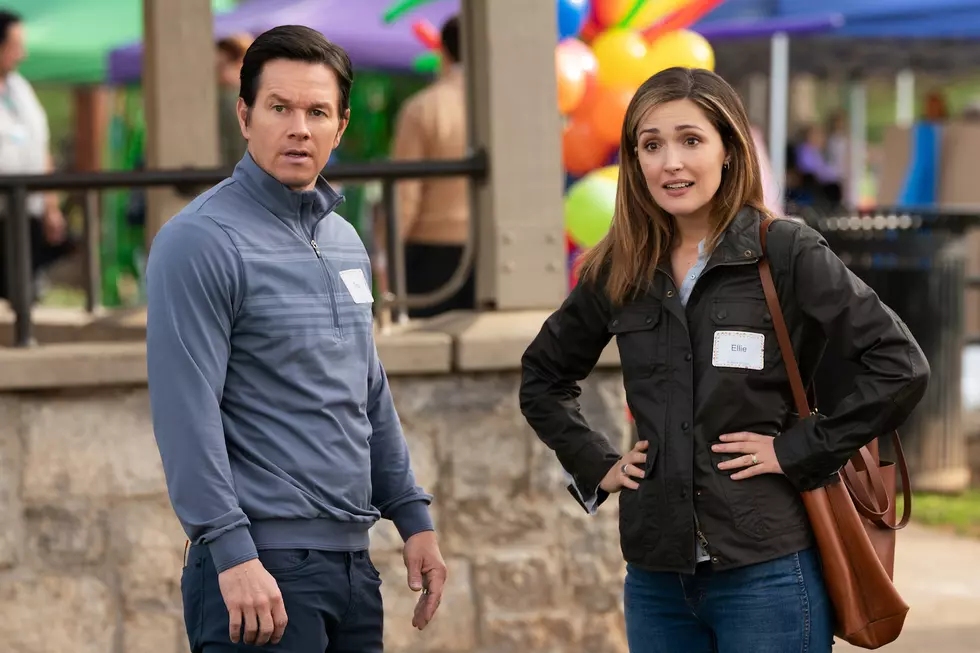
‘Army of the Dead’ Review: Zack Snyder’s Lively Return to the Zombie Genre
Dave Bautista is not what you would call “the strong, silent type.” Barely concealed beneath the hulking body of a superhero — a role he’s played multiple times in Marvel’s Guardians of the Galaxy films — lies a heart bursting with emotions. He’s prone to eruptions of anger and frustration, and he’s not afraid to cry onscreen. At 52, he’s a little bit older than your standard Hollywood action dude. He wears the weight of all those years in every line on his weathered face. He looks like he could beat the crap out of you without breaking a sweat — and then would wrestle with the guilt and shame of what he’d done for the rest of his life.
All of these qualities make Dave Bautista the perfect leading man for Zack Snyder, a filmmaker who has spent the last decade tearing apart the iconography of DC Comics heroes. He turned Superman into a reluctant savior ridden with self-doubt and remade Batman into a sadistic avenger of crime. Snyder’s latest, Army of the Dead, is a high-concept combination of zombie movie and heist film. Beyond the thrills, though, it’s Snyder’s opportunity to continue the themes from his last several DC movies, and particularly his Justice League director’s cut, about remorseful fathers trying to repair broken relationships with their children amidst apocalyptic shenanigans.
That’s where Bautista comes in. He plays Scott Ward, a retired soldier who helped rescue the Secretary of Defense from Las Vegas after it was suddenly overrun with zombies. The Vegas outbreak was ultimately contained by building a wall around Sin City; years later, the military is ready to nuke the place once and for all to ensure no further problems from the undead. With the government distracted, a wealthy casino magnate (Mortal Kombat’s Hiroyuki Sanada) senses an opportunity, and recruits Ward to assemble a team to retrieve $200 million from the vault of his abandoned casino before the bombs obliterate the money.
Flipping burgers in a greasy spoon, estranged from his adult daughter Kate (Ella Purnell), Ward decides he has nothing to lose. So he reunites with some of his old buddies (including Omari Hardwick’s Vanderohe, a philosophical warrior who carries around an enormous circular saw as a weapon) and recruits some new help (like Matthias Schweighöfer’s Dieter, a quirky safe cracker with no zombie-killing experience) to break back into Vegas. Sanada’s Tanaka insists the heist will be a piece of cake — an early montage intercuts his description of the plan with slo-mo footage of Ward’s crew effortlessly slaughtering zombies on their way to fortune and glory — but no movie heist is ever a piece of cake. Even before Ward and company sneak into Vegas, there are complications. Kate demands to join the team in order to find a missing friend, and Tanaka adds his right-hand man (Garrett Dillahunt) to the group, and he obviously does not have the mission’s best interests at heart.
Snyder’s very first feature as a director was a remake of George Romero’s Dawn of the Dead, a daunting task he pulled off with impressive confidence and skill. Returning to the world of zombies for the first time in over 15 years, Snyder’s invented a lively new take on the genre. Adding in heist elements already brings a new tone and flavor to the familiar formula. On top of that, Snyder and co-writers Shay Hatten and Joby Harold engineer an interesting way to include both classes of zombies — the slow, shambling ones and the fast, intelligent ones — by creating an entire zombie society in the ruins of Las Vegas. Discovering that society’s customs and culture (along with the motivations of the zombies’ leader, played by Richard Cetrone) enhances the intrigue as Ward and his men push deeper and deeper into hostile territory.
There are weighty ideas poking around the edges of the frame — the situation in Vegas creates a refugee crisis within the United States, and the treatment of the survivors who’ve been “quarantined” contains unsettling parallels to our post-covid reality — but mostly Snyder seems to be having a blast now that’s finally free of worrying what DC fans (and, more importantly, what Warner Bros. executives) think of his work. His dystopian Las Vegas is full of wild imagery, like a zombie chieftess in a crumbling showgirl outfit, and an undead tiger that prowls the Strip in search of fresh meat. Snyder provides the requisite action sequences demanded of something called Army of the Dead, but he finds a lot of ways to surprise viewers as well.
He also uses Bautista to great effect. Army of the Dead proceeds slowly, leaving the characters plenty of time to talk between the shootouts and chases. Bautista gets to pour his heart out to Purnell, and to play some very funny scenes with Matthias Schweighöfer’s Dieter and Tig Notaro’s sarcastic helicopter pilot. Snyder understands that horror movie gore means nothing if we don’t care about the characters getting vivisected, and he does a really solid job of bringing emotional dimensions to the human cast. By the end of the film, he’s even made us interested in Cetrone’s alpha zombie as well.
At 148 minutes, Army of Dead does drag on a bit too long. When it finally arrives at its climax, its deliberate pace vanishes for a frantic, messy finale that isn’t quite as satisfying as it could be. Overall though, this is easily Snyder’s best movie in at least a decade. When Ward fights back tears as he tries to apologize to his daughter for all of the problems he’s caused, one senses that Snyder is pouring his guts out in a much more metaphorical way than is typical of zombie movies. It’s clear we won’t need a Snyder Cut of Army of the Dead. This is a Zack Snyder movie through and through.
Additional Thoughts:
-There are some audacious needle drops in this movie, but the incredibly on-the-nose choice for the song that plays over the epilogue really takes the cake. It’s so literal it’s kind of brilliant. Nobody but Zack Snyder would have tried it.
-Tig Notaro was cast as a last-minute replacement for comedian Chris D’Elia; after numerous sexual misconduct allegations were made against the actor last summer, long after principal photography had wrapped, Snyder completely removed D’Elia from the film and hired Notaro to replace him. Rather than reshoot entire scenes in the middle of a pandemic, Snyder filmed Notaro alone in front of green screens and then inserted her into the existing footage of the rest of the cast. (You can read a full breakdown of the process here.) The effect is convincing enough that people who don’t know the backstory probably won’t notice — although if you do know what happened you might chuckle once or twice when you spot Notaro sort of pasted into the foreground of group shots.
RATING: 7/10
10 Mandela Effects From the World of Movies






